- Home
- Michael Korda
Hero Page 14
Hero Read online
Page 14
CHAPTER THREE
“The Family Romance”
These consciously remembered mental impulses of childhood embody the factor which enables us to understand the nature of hero-myths The later stage … begun in this manner might be described as “the neurotic’s family romance.”
—Sigmund Freud, Collected Papers
Shortly before the outbreak of World War I, a tall, lean, slightly stooped gentleman of distinguished appearance sat down in the small study of his modest Oxford home to write a letter to his five sons, to be opened and read only after his death. Whether he had some apprehension—unfounded, as it turned out—about his own health, or whether like many intelligent people he sensed the storm clouds of war upon the horizon, and knew that those of his sons who were old enough to do so would want to serve king and country, it is impossible to guess. In any event, he briefly, and with great dignity, outlined for them what he and their mother had never been able to share with them during all their years together as a family.
On the envelope, once he had sealed it, he wrote in his firm handwriting, “To my sons—But not to be opened except mother and I are dead—OR when mother desires to—”
My dear sons—I know this letter will be a cause of great sorrow and sadness to you all as it is to me to write it. The cruel fact is this, that yr Mother and I were never married.
When I first met Mother, I was already married. An unhappy marriage without love on either side—tho’ I had four young daughters. Yr Mother and I unfortunately fell in love with each other and when the exposé came, thought only of getting away and hiding ourselves with you Bob, then a Baby. There was no divorce between my wife and myself. How often have I wished there had been! Then I drank and mother had a hard time but happily I was able to cure myself of that. You can imagine or try to imagine how yr. Mother and I have suffered all these years not knowing what day we might be recognized by someone and our sad history published far and wide. You can think of what delight we saw each of you growing up to manhood for men are valued for themselves and not for their family history, except of course under particular circumstances. My real name when I met yr Mother was Thomas Robert Tighe Chapman Bart but needless to say I have never taken the Title. There is one little ray of sunshine in the sad history, namely, that my sister who married my cousin Sir Montagu Chapman, & my brother Francis Vansittart Chapman of South Hill (my father’s place; the life interest of which I agreed to sell) were always loving to me & it is thro’ their goodness that I have been able to leave you the greater part of the sum I have left. My brother at his death left me £25000. & my sister in her Will has bequeathed me £20000, but owing to the wording of her Will I shall not receive this £20000 if I die before her. She is alive but a great invalid & no fresh Will of hers wld be valid tho’ I know she intended and wished this £20000 to go to you all, if I should die before her. She for many years gave me £300 a year, which, with my own fortune, enabled us all to live very comfortably & saved Mother and me great pinching to make ends meet & also kept me from drawing on my Capital for every day expenses.
Bob’s name was registered in Dublin (near St. Stephen’s Green)as “Chapman"; hence his name in my Will. I shld recommend him to retain his name of Lawrence; a man may change his sirname [sic] anytime & need not take legal steps to do so, except he is expecting to inherit places or moneys from others, who know him by his former name.
I can say nothing more, except that there was never a truer saying than “the ways of transgressors are hard.” Take warning from the terrible anxieties & sad thoughts endured by both yr Mother and me for now over thirty years; I know not what God will say to me (yr Mother is the least to be blamed) but I say most distinctly that there is no happiness in this life, except you abide in Him thro’ Christ & oh I hope you all will.
Father
Readers of Victorian fiction will recognize here the essential elements and tone of Dickens’s greatest novels, particularly in all these details about wills, money, the invalid sister, and the family secret, as well as the pious exhortation at the end of the letter. It is hard to think of Lawrence as a latter-day Pip or Oliver Twist, but it is in this light that we must see him and his four brothers, who grew up in the shadow of their loving parents’ secret. There is no evidence that any of them ever read their father’s letter, or even knew of its existence. Two of them, Frank and Will, would be killed early on in the war; one of them would survive the war to become perhaps its most famous hero; and of the other two, Bob, the eldest, and Arnold, the youngest, eventually made their peace with their parents’ relationship, though late in life and reluctantly. T. E. Lawrence, known in his family as Ned, seems, perhaps because he was the most sensitive and imaginative of the boys, to have guessed early on in his childhood that something was “irregular” about his parents, and apparently came by himself to the conclusion that his parents were not married. He mistakenly imagined, however, that his mother had had a relationship with an older man and had given birth to her three eldest sons by him, then met “Mr. Lawrence,” who befriended her, adopted her sons,and fathered two more. Thus he recognized himself as his mother’s son, but instinctively denied his father’s paternal role, a textbook example of Freud’s Oedipus complex. At any rate, Ned faced—earlier than the other boys—the fact that he was illegitimate, in an age when this still mattered very much indeed, and learned the truth about his parents’ relationship long before his brothers.
For those interested in heredity, it is curious to note that Ned’s father shared with his second son the altogether mistaken belief that a British title, award, or decoration can be turned down, or not “taken.” Until 1963, when the Peerage Act was amended to allow Tony Benn to renounce his title as the second viscount Stangate and thereby retain his seat in the House of Commons,* a person who inherited a peerage was obliged to accept it. Ned’s father was a baronet (a hereditary knighthood, ranked just below a peerage) whether he wanted to be or not. He could and did change his name, refuse to use his title, give up his properties, and so on, but so far as the crown and the law of Great Britain were concerned, he remained Sir Thomas Chapman, the seventh baronet. Indeed his wife, Lady Chapman, would very correctly write to the Home Office to confirm her husband’s death in 1919 to the Registrar of the Baronetage, after which the title became extinct for lack of a legitimate male heir.
The facts of T. E. Lawrence’s birth did not become widespread public knowledge until 1953,† when word leaked out about Richard Aldington’s hostile “biographical inquiry” into Lawrence’s life. This inquiry created alarm and indignation both in what remained of the Lawrence family and among those—much more numerous—who fiercely resented an attack on a British national hero, as well as concern for the feelings of Lawrence’s mother, who was then still alive.
There is no doubt that this background played a major role in forming Lawrence’s character and shaping his desire to become a hero. A powerfulcombination of shame, guilt, and ambition drove him to seek a fame brilliant enough to make the name Lawrence more worthy than the name Chapman, and thus to offer his father, the aristocrat who had put aside his title and wealth to run away with his daughters’ governess, a hero for a son.
In 1932, when the Irish Academy of Letters was founded, the poet William Butler Yeats wrote to Lawrence, then serving in the Royal Air Force as an aircraftman first class under the name Shaw, to tell him that he had been proposed as an associate member. Lawrence, who was reluctant to join clubs and associations of any kind—for example, he had given up his prestigious fellowship at All Souls College, Oxford, and declined an honorary doctorate from the University of St. Andrews—nevertheless sent Yeats a gracious letter of acceptance, in which he remarked, “I am Irish, and it has been a chance to admit it publicly.”
Like many things about Lawrence’s view of his family, this was not altogether the truth. His father, Thomas Robert Tighe Chapman, was a descendant of William Chapman, of Hinckley, in Leicestershire, England, a distant cousin of the Elizabet
han adventurer Sir Walter Raleigh. William, together with his brother John, received a substantial grant of land in County Kerry, Ireland, at the expense of the Irish inhabitants, who either were cleared away or became tenants. William’s son Benjamin was a Roundhead, who served as an officer in a troop of horse raised for Parliament during the Civil War, rose to the rank of captain, and was rewarded by Oliver Cromwell with several estates in County Westmeath, Ireland. Three generations later, in 1782, Benjamin Chapman III was made a baronet, and six baronets followed over the next 137 years, each of them staunchly English and firmly Protestant. They were, in fact, members of what came to be called the “Protestant Ascendancy,” those English families that were granted huge estates from the land of the defeated and despised native Irish. The simple historical fact is that Ireland was ruled for several centuries by the English; the major landowners, of whom Sir Thomas Chapman was one, were English; and the Anglo-Irish, as the small, dominant class was called, held sway over aresentful, dispossessed, disenfranchised Catholic majority. The Chapmans, from generation to generation, lived off the income of their estates in Ireland, sent their sons to be educated in England, and married young women from families of a similar background.
T. E. Lawrence himself was born in Wales, and so far as is known never visited Ireland; thus neither his birth nor his ancestry qualified him to claim he was Irish. However, he may have been moved by a sentimental regard for his friends Mr. and Mrs. Bernard Shaw, or he may have felt an increasing sense of guilt over Britain’s imperial role.
Thomas Robert Tighe Chapman, Lawrence’s father, was perhaps the most mysterious personality in the Lawrence “family romance.” We know that he went to Eton, the foremost of England’s famous public schools (which are of course expensive, exclusive, and private), and that instead of going on to Oxford or Cambridge, he attended the Royal Agricultural College, in Cirencester, in England—no doubt a more suitable education for a landed gentleman farmer, for the Chapmans’ family land in Ireland “totaled over 1,230 acres,” which required a practical knowledge of farm management from its owner if it was to remain profitable. Since the estate was valued at £120,296 in 1915 (approximately the equivalent of at least $10 million today), there is no question that it was farmed well, or that the Chapmans were a family of considerable landed wealth, connected by marriage with other wealthy and prominent Anglo-Irish families like the Vansittarts (T. E. Lawrence’s grandmother was a Vansittart, and the distinguished diplomat Lord Vansittart, GCB, GCMG, was his second cousin).
How much active interest Thomas Chapman took in farming is hard to determine. He seems to have lived as a wealthy sportsman, hunting, shooting (he was reputed to be the best snipe and pheasant shot in Ireland), and yachting. He was an enthusiastic amateur photographer at a time when photographers developed and printed their own pictures in an improvised darkroom at home, and when the camera was still a bulky object that used glass plates and required a tripod; and he eventually became an accomplished bicycle enthusiast, at a time when bicycling wasall the rage. Judging from his letters to his sons, he had a firm, sensible, and practical knowledge of business, although Lawrence would later claim that his father never wrote a check himself—perhaps because he was used to having “a man of business” to do that for him. Chapman admits that he drank, in his letter to his sons, but how much he drank is unclear. In Ireland toward the end of the Victorian era the pole was set pretty high, and none of Chapman’s neighbors in later years remembered him as a heavy drinker. Since the woman he married and the woman he left his wife for were both teetotalers who objected to any consumption of wine, beer, or spirits, it would not have been necessary for Chapman to be a drunk to stir up complaints about his drinking at home; but in the hunting and shooting world of Anglo-Irish landowners in those days a man would have had to drink very hard indeed to qualify as a drunkard.
Three things are absolutely clear about Chapman: he was a gentleman, in every meaning of that word; he was an enthusiastic sportsman, more interested in foxhunting and shooting birds than in farming; and he was a caring, wonderful father. In 1873 he married Edith Sarah Hamilton, a cousin, and between 1874 and 1881 they had four daughters. Whether this was a love match or a practical union between two related landowning Protestant families is hard to judge at this distance in time, but it seems clear enough that Edith and Thomas were not well suited to each other. She was fiercely religious; she was known to the local villagers as “the Vinegar Queen” because of her sour expression; and she earned considerable dislike by her practice of slipping Protestant religious tracts under the doors of her Catholic tenants and neighbors. Their home, South Hill, near Delvin, built by Benjamin Chapman, the first baronet, is one of those big eighteenth-century stone country houses that look more solid than beautiful, though a visitor in the 1950s commented on the beauty of the landscaping and the gardens, and on the Georgian grace of the interior, with its pillared hall, fine moldings, marble fireplaces, and ornamental ceilings. Edith Chapman (who became Lady Chapman when her husband inherited the baronetcy in 1914) held frequent prayer meetings; she also insisted that her husband get up in the middle of the nightto read the Bible aloud to her, and had an alarm clock by the bed to wake him for that purpose. To what extent, if any, the fact that Edith had four daughters in a row played a part in the deterioration of their marriage is hard to guess. At that time, Thomas could not have had any realistic expectation of inheriting the title. Until 1870 his elder brother William was first in the line of succession, should their cousin Sir Benjamin die or fail to have a male heir.* He therefore didn’t need a son to inherit it after him, but that does not necessarily mean, much as he may have loved his daughters, that he didn’t hope for a son, with whom he might have shared his love of horses, sailing, hunting, and shooting.
At some point between 1878 and 1880, Thomas Chapman sought a governess for his daughters, and hired a young woman from Scotland named Sarah Lawrence. Edith Chapman’s religious zeal was increasing rapidly, and it may be that she was unwilling to hire an Irish Catholic woman. If this is the case she must have been pleased by the choice, since Sarah Lawrence was deeply religious, as firmly opposed to liquor as Mrs. Chapman herself, and a fervent Protestant. Sarah was short, energetic, intelligent, and despite a very determined jaw, quite pretty. The Chapman girls adored her, and she quickly took over managing the house as well, leaving Edith Chapman to her prayers. Thomas Chapman’s drinking (and Edith’s objection to it) had by then reached the stage where he was obliged to hide liquor bottles in odd places around the house, while his wife devoted herself, when she was not holding prayer meetings, to hunting them down and emptying them. It does not sound like a happy household, but the daughters may have been shielded from much of this—or perhaps like many people, once they grew up they remembered only the happier moments and repressed the rest.
As to why Sarah was called a governess, instead of a nanny, it is hard to say. She may have been in charge of the education, moral welfare, and upbringing of the Chapman girls, with an “Irish girl” to do the heavy work of cleaning, bathing, cooking, making beds, etc.; or perhaps calling her a governess was intended put her in a higher station than that of the rest of the servants, who were, of course Irish and Catholic. In any case, her role soon became that of governess, and in later life, when she was keeping a house of her own, her five sons would all comment on her fanatical zeal, energy, and eagle eye.
Sometime in 1885 a crisis occurred. Sarah Lawrence became pregnant and was obliged to leave in disgrace and settle in Dublin. The Chapman girls were deeply distressed and upset by her departure—the second of them, Rose, could still describe, nearly seventy years later, a spiral-shaped crystal scent bottle with a silver top which Sarah had given her on leaving, and which her mother took away from her. It is clear that there was a deep affection between the girls and Sarah. Rose would describe her years later as “so gay and pretty.”
A Catholic neighbor of the Chapmans would comment, decades later, that Edith Chapman “was
the sort of woman who was terribly pious, and would go to church at all hours of the day, and then if a wretched kitchen maid got into trouble, would cast her out without a character [reference]. Where did Christianity come [into] that?” It seems likely that Edith would have been even less forgiving of a governess who became pregnant than a mere kitchen maid, but in this case there was worse to come. Several months after Sarah’s departure, a family servant happened to see Sarah and Thomas Chapman together in Dublin, and—perhaps having been jealous of Sarah’s privileged place in the household—reported the fact to Edith. After an angry confrontation, Thomas “eloped,” which is to say that he walked out of his home and his marriage and went to join Sarah, who had given birth to his child, in lodgings “over an oyster bar, near the Abbey or the Gaiety theater,” in Dublin.
The scandal was enormous—the wealthy sportsman and landowner had abandoned his wife and children for the daughters’ governess, having gotten her pregnant under his own roof, challenging every assumption of a class society: the sanctity of marriage, the place of servants, the privileges and obligations of birth and wealth—all perhaps best expressed in the words of that favorite, richly complacent Victorian hymn: “The richman in his castle, the poor man at the gate, He made them high or lowly, and ordered their estate.”
The oyster bar is a wonderful touch too, of course—there is something truly Dickensian about Chapman’s instant descent from South Hill with its eighteenth-century pillared hallway to lodgings in a back street of Dublin. A neighbor remembered that the day Chapman left South Hill he had one of his horses tacked up to take a last ride over his property at five-thirty in the morning, saying good-bye not so much to his family, perhaps, as to his land and the life of a wealthy sportsman that went with it. Despite this, one of his foxhunting companions, named Magan, commented gruffly that it was “The only sensible thing that Tommy ever did—can’t think why he didn’t do it sooner.”

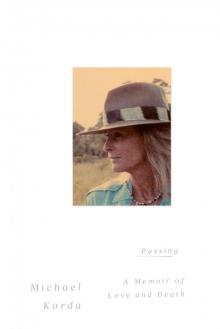 Passing
Passing Another Life
Another Life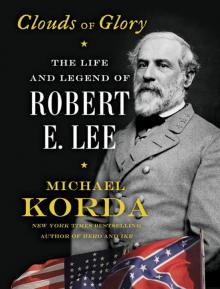 Clouds of Glory
Clouds of Glory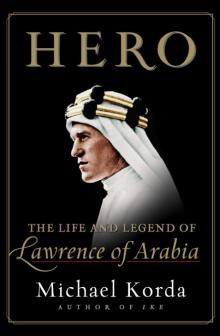 Hero: The Life and Legend of Lawrence of Arabia
Hero: The Life and Legend of Lawrence of Arabia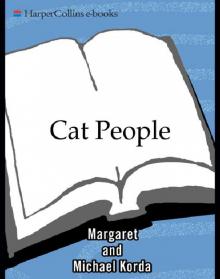 Cat People
Cat People Hero
Hero With Wings Like Eagles: A History of the Battle of Britain
With Wings Like Eagles: A History of the Battle of Britain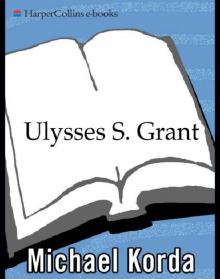 Ulysses S. Grant
Ulysses S. Grant